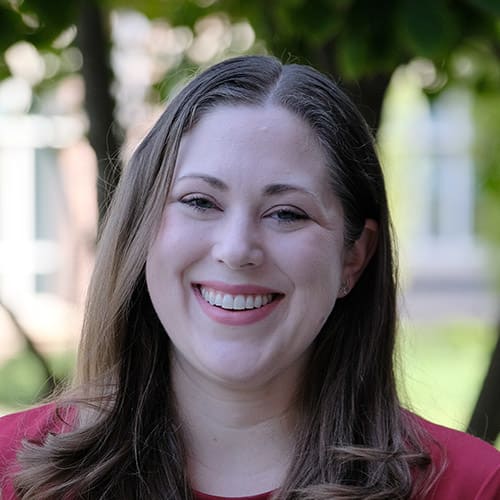
VA Family Caregiver Program Options

Life as a caregiver can present significant, sometimes unexpected, challenges. Being a primary caregiver to a senior loved one can be rewarding — but it may mean sacrificing your financial stability, stepping away from a career you love, and losing time to focus on your own needs. In addition, those who care for veterans face obstacles that other caregivers may not. Caring for a veteran typically presents a longer-term arrangement with a more significant caregiving workload.
Let our care assessment guide you
Our free tool provides options, advice, and next steps based on your unique situation.
It’s common to feel overwhelmed. Remember — you’re not alone. You can seek assistance through caregiver support services offered by The Department of Veterans Affairs. Or, if you and your veteran don’t qualify for or choose to participate in the VA health system, private sector resources are available to support you and help you meet your loved one’s care needs.
VA caregiver support services
A notable barrier for caregivers and veterans is learning how to effectively advocate for services, which requires knowledge of how the VA and its programs work, according to the DAV Veteran Family Caregiver Survey. Joining a caregiver support group, online or in-person, can provide the connections you need to feel empowered on your caregiving journey.
“One of the best ways for caregivers to advocate for their veterans is to connect to the many resources and organizations available,” says Deborah A. Bradbard, senior research associate at the Institute for Veterans and Military Families at Syracuse University. “This way they can learn from the experiences of other caregivers. Share their own experiences and get support and assistance when they encounter barriers.”
Program of Comprehensive Assistance for Family Caregivers
The Program of Comprehensive Assistance for Family Caregivers (PCAFC) is for eligible veterans who’ve gotten or aggravated a serious injury in the line of duty. It’s the marquee program for veteran family caregiving assistance, offering useful resources and services to both eligible veterans and their caregivers. If your loved one requires personal care services from a professional caregiver, the PCAFC may be able to offer assistance. To determine eligibility for this program, the VA looks at both the veteran and the caregiver with these requirements.
How many caregivers can be appointed for one veteran under PCAFC?
Upon qualifying for PCAFC, encourage your veteran to thoughtfully reflect upon how to designate their caregivers. The VA allows veterans to designate one Primary Family Caregiver and up to two Secondary Family Caregivers, who provide backup support to the primary as needed. Each category receives different benefits to support their caregiving role.
“Sharing responsibilities with others, if they are available, is also a good strategy,” says Julie L. Masters, Terry Haney Chair of Gerontology and a professor of gerontology at the University of Nebraska Omaha. “Some people are good at handling finances, while others are skilled at doctor’s visits and such. Dividing and conquering is a good strategy in supporting a loved one.”
Applying for PCAFC
Talk with your veteran to see if they want to pursue assistance through PCAFC. If your loved one wants to apply, start by gathering all important documents, including service-related documents such as a DD-214, a Report of Separation, and any awards or decorations.
If your loved one is not enrolled in the VA health system, they will need to apply for VA health care benefits through a VA Form 10-10EZ before proceeding. Once your veteran is enrolled, you can apply for PCAFC through the VA website together.
Options for veterans who don’t qualify for PCAFC
The VA provides alternative programming and support services for veterans and caregivers who don’t qualify for PCAFC. These alternatives include options for in-home care and long-term senior living. Future expansions to PCAFC eligibility are likely — your veteran may qualify in at that time, even if they don’t now.

Let our care assessment guide you
Our free tool provides options, advice, and next steps based on your unique situation.
Program of General Caregiver Support Services
The VA’s Program of General Caregiver Support Services (PGCSS) does not have a formal application process. General caregivers don’t need to be a relative, nor do they need to live with the veteran. As a general caregiver, you’ll have access to support, caregiving skills training for to your veteran’s unique needs, counseling related to the care of your loved one, and respite care services.
VA Respite Care program
All enrolled veterans remain eligible for the VA Respite Care program as long as they meet clinical criteria requirements and services are available. Respite care provides caregivers, like yourself, a much-needed break to rest and recharge your body and mind.
“Caring for a loved one is never easy. Taking time off is important to you and the person you care for,” says Masters. “You both can benefit from respite (another word for relief) on a regular basis.”
The VA generally offers two types of respite care: home respite care and nursing home respite care. With home respite care, the program either pays for a professional caregiver to come to a veteran’s residence or pays to send the veteran to an adult day health care program. Nursing home respite care pays for your veteran to go to a nursing home for a few days at a time. These services and their availability vary by location.
What if my veteran does not want to go through the VA health system?
Waiting for the next expansion of PCAFC or standing by for VA health program approval doesn’t work for everyone’s situation.
If you are an adult child caregiving for your parent who is a veteran, you may qualify for the financial benefits of the Medicaid Child Caregiver Exemption.
Additionally, some veterans may prefer not to go through the VA health system for assistance, for personal or political reasons. Respect your veteran’s choice when it comes to their care.
VA Aid and Attendance
Your veteran may qualify for a monthly payment through the VA Aid and Attendance program to help cover the cost of long-term senior care. Service, financial, and clinical requirements determine your loved one’s eligibility for this program.
Talk with one of our Senior Living Advisors (SLAs) to discover available care options. An SLA can help you find home care or senior living communities near you. They can also connect you with a VA-accredited partner to learn more about your veteran’s eligibility.
Aid and Attendance benefits can be used to cover several different types of care, including home care and senior living communities.
Home care through Aid and Attendance
Home care options for veterans provide personalized care for your loved one in the comfort of their own home. These services include everything from full-time live-in care to hourly assistance. Home care aides typically offer help with activities of daily living, companionship, and light housekeeping, and are well-versed in the needs of seniors. Take time to care for yourself with a visit to your doctor, an exercise class, or social activities with friends while the home care aide assists your loved one.
Senior living communities through Aid and Attendance

Talk with a Senior Living Advisor
Our advisors help 300,000 families each year find the right senior care for their loved ones.
If you and your veteran decide they can no longer live at home, you can choose from a variety of senior living options to fit their lifestyle and needs. An SLA can guide you through possible communities that meet your needs and your budget, after designing a senior care plan. Assisted living communities, care homes, nursing homes, and memory care communities could offer the services your veteran needs to lead an active and engaging lifestyle.
Understanding the differences between types of senior living communities plays a vital role in you and your veteran’s decision-making process. Explore the following types of senior living communities:
- Assisted living offers a long-term housing and care option for those needing support with activities of daily living (ADLs) and is well suited for generally active, autonomous individuals.
- Nursing homes facilitate long-term care for individuals requiring 24-hour nursing and personal care services.
- Memory care communities deliver targeted care, therapies, and housing to those with Alzheimer’s and other forms of dementia.
Whether your veteran qualifies for VA programs and services or not, the private sector offers a variety of ways to assist you as a veteran family caregiver. Reach out to an SLA today to learn more about all the options available to you and your senior loved one.
Sources:
Blue Star Families in partnership with the Rosalynn Carter Institute for Caregivers and in collaboration with the Syracuse University Institute for Veterans and Military Families. “Caregiving in Military Families. 2020 Military Family Lifestyle Survey Special Report.”
DAV. “America’s Unsung Heroes Challenges and Inequities Facing Veteran Caregivers.”
Department of Veterans Affairs. “Commissary, Military Service Exchange, and MWR access extended to more Veterans beginning January.”
RAND Corporation, funded by the Elizabeth Dole Foundation. “Hidden Heroes: America’s Military Caregivers.”
National Alliance for Caregiving and United Health Foundation. “Caregivers of Veterans – Serving on the Homefront.”
VA caregiver support services
Senior living options in all states
The information contained on this page is for informational purposes only and is not intended to constitute medical, legal or financial advice or create a professional relationship between A Place for Mom and the reader. Always seek the advice of your health care provider, attorney or financial advisor with respect to any particular matter, and do not act or refrain from acting on the basis of anything you have read on this site. Links to third-party websites are only for the convenience of the reader; A Place for Mom does not endorse the contents of the third-party sites.
Make the best senior care decision
Make the best senior care decision